
Riyadh: The Jewel of the Arabian Desert
Riyadh, the capital city of Saudi Arabia, is a mesmerizing blend of ancient culture and modern luxury. This vibrant metropolis is situated in the heart of the Arabian Desert and offers a unique experience with its rich history, stunning architecture, and bustling markets. From the towering Kingdom Centre to the historic Masmak Fortress, Riyadh is a city of contrasts where tradition meets innovation. One of the highlights of Riyadh is the Diriyah, a UNESCO World Heritage site. This area is the birthplace of the Saudi state and offers a glimpse into the country's storied past. Visitors can explore mud-brick houses, ancient palaces, and the beautiful Salwa Palace. The area is also home to the Diriyah Gate, a large-scale project aimed at transforming the site into a global cultural and lifestyle destination. For those seeking a taste of modernity, the King Abdullah Financial District showcases Riyadh's economic prowess with its sleek skyscrapers and state-of-the-art facilities. Shopping enthusiasts will find paradise in the city's numerous malls, such as Al Nakheel Mall and Riyadh Gallery Mall, offering everything from international brands to traditional Arabian goods. Riyadh also boasts a thriving culinary scene. From traditional Saudi dishes like Kabsa and Mandi to international cuisines, the city's restaurants cater to all tastes. Don't miss out on Al-Malaz Park, a green oasis in the city where families and friends gather for picnics and leisurely strolls. As you explore Riyadh, you'll find that it's not just a city but an experience that leaves a lasting impression.
Local tips in Riyadh
- Visit during the cooler months from November to March to avoid the extreme heat.
- Dress modestly to respect local customs and traditions.
- Use ride-hailing apps like Uber or Careem for convenient transportation.
- Be sure to carry some cash, as not all places accept credit cards.
- Try local delicacies at traditional Saudi restaurants for an authentic experience.
Neighbourhoods in Riyadh
Riyadh: The Jewel of the Arabian Desert
Riyadh, the capital city of Saudi Arabia, is a mesmerizing blend of ancient culture and modern luxury. This vibrant metropolis is situated in the heart of the Arabian Desert and offers a unique experience with its rich history, stunning architecture, and bustling markets. From the towering Kingdom Centre to the historic Masmak Fortress, Riyadh is a city of contrasts where tradition meets innovation. One of the highlights of Riyadh is the Diriyah, a UNESCO World Heritage site. This area is the birthplace of the Saudi state and offers a glimpse into the country's storied past. Visitors can explore mud-brick houses, ancient palaces, and the beautiful Salwa Palace. The area is also home to the Diriyah Gate, a large-scale project aimed at transforming the site into a global cultural and lifestyle destination. For those seeking a taste of modernity, the King Abdullah Financial District showcases Riyadh's economic prowess with its sleek skyscrapers and state-of-the-art facilities. Shopping enthusiasts will find paradise in the city's numerous malls, such as Al Nakheel Mall and Riyadh Gallery Mall, offering everything from international brands to traditional Arabian goods. Riyadh also boasts a thriving culinary scene. From traditional Saudi dishes like Kabsa and Mandi to international cuisines, the city's restaurants cater to all tastes. Don't miss out on Al-Malaz Park, a green oasis in the city where families and friends gather for picnics and leisurely strolls. As you explore Riyadh, you'll find that it's not just a city but an experience that leaves a lasting impression.
When is the best time to go to Riyadh?
Iconic landmarks you can’t miss
Riyadh Zoo
Discover the enchanting Riyadh Zoo, a family-friendly animal park blending wildlife encounters with conservation efforts in Saudi Arabia's capital.
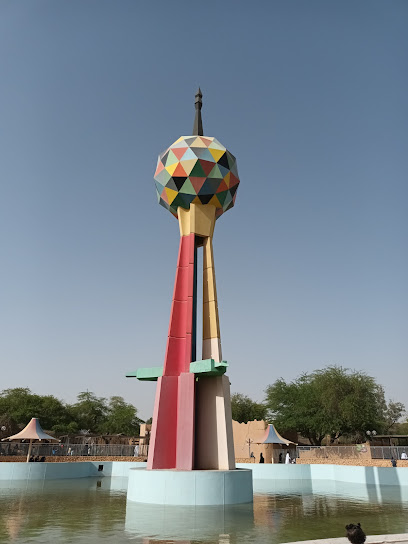
King Abdullah Park
Explore the beauty of King Abdullah Park, a serene urban oasis in Riyadh, perfect for relaxation, recreation, and cultural experiences.
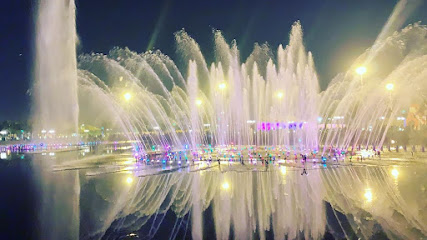
Kingdom Centre
Experience the best of luxury shopping and breathtaking views at Kingdom Centre, Riyadh's iconic architectural masterpiece.
Riyadh Season
Experience the magic of Riyadh Season, a vibrant festival celebrating culture, entertainment, and culinary delights in Saudi Arabia's capital city.
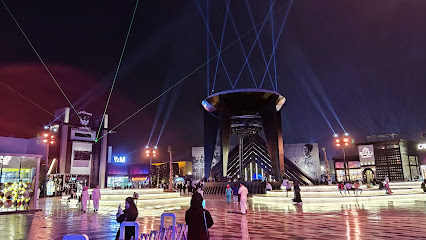
King Khalid Grand Mosque
Explore the awe-inspiring King Khalid Grand Mosque in Riyadh, a masterpiece of Islamic architecture and a serene haven for spiritual reflection.
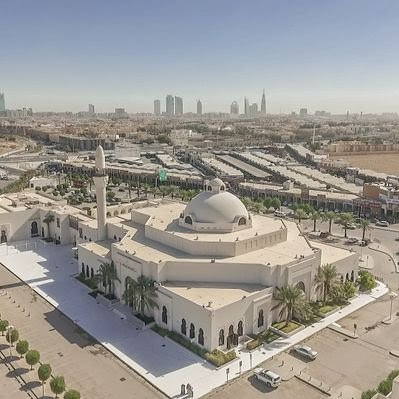
The National Museum
Discover Saudi Arabia's rich heritage at The National Museum, where history, culture, and art come together in a breathtaking setting.
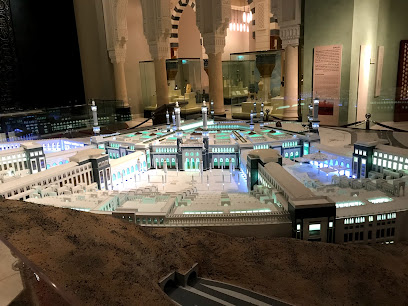
Al Bujairi Heritage Park
Discover the serene beauty and rich history of Al Bujairi Heritage Park, a perfect blend of nature and culture in Riyadh's scenic landscape.
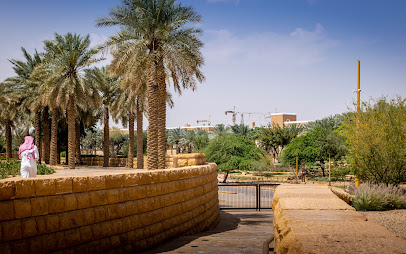
Al Nahda Park
Discover the lush landscapes and tranquil atmosphere of Al Nahda Park, a serene oasis in the heart of Riyadh, perfect for relaxation and family fun.
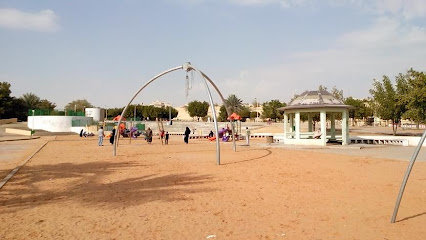
Salam Park
Explore Salam Park, a green oasis in Riyadh featuring beautiful gardens, art displays, and recreational activities for a perfect day out.
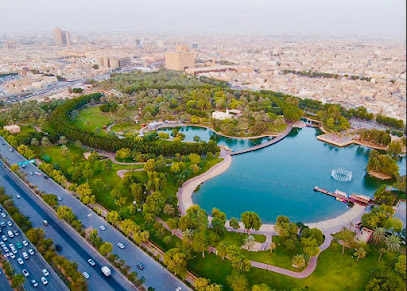
Souk Al Zal
Explore Souk Al Zal in Riyadh: a vibrant market showcasing traditional crafts, spices, and an immersive cultural experience.
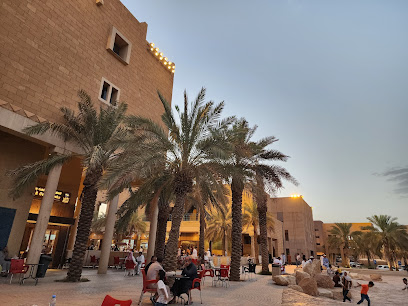
Al Masmak Palace Museum
Explore Saudi Arabia's rich heritage at Al Masmak Palace Museum, a historical landmark in Riyadh, featuring captivating exhibits and stunning architecture.
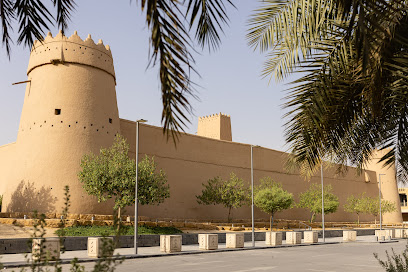
برج المملكة
Explore the Kingdom Centre in Riyadh, a stunning architectural marvel offering luxury shopping, fine dining, and breathtaking views of the city.
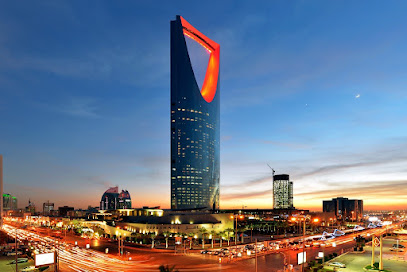
Al Faisaliah Tower
Discover the elegance of Al Faisaliah Tower, an iconic landmark in Riyadh, offering stunning views, fine dining, and premier shopping experiences.
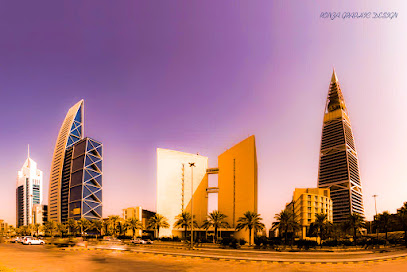
WORLD SIGHTS PARK
Discover World Sights Park in Riyadh, where stunning replicas of global monuments create a unique experience for tourists and families alike.
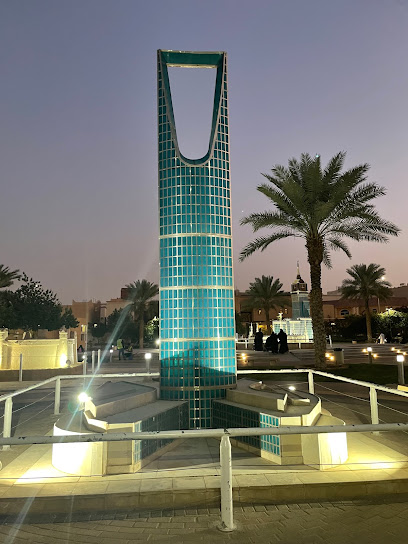
Al Wadi Park
Discover the serene beauty of Al Wadi Park in Riyadh, a perfect escape for nature lovers and families looking for a green retreat.
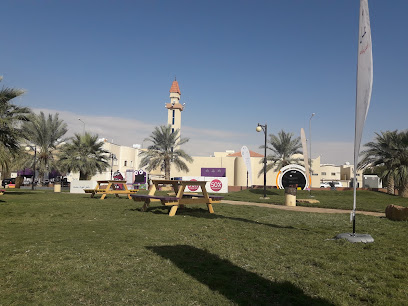
Unmissable attractions to see
Al Rajhi Mosque
Discover the architectural beauty and spiritual essence of Al Rajhi Mosque, one of Riyadh's most revered landmarks, offering tranquility and cultural insight.
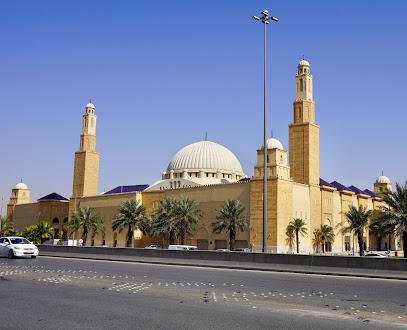
Riyadh Season
Experience the thrill of Riyadh Season, an extraordinary festival of culture, entertainment, and culinary delights in Saudi Arabia's vibrant capital.
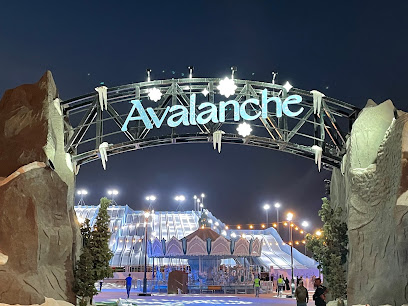
The National Museum
Explore the captivating history of Saudi Arabia at The National Museum, where ancient artifacts and vibrant culture come to life.
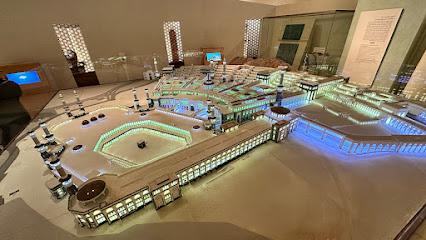
Lake Park Namar Dam
Discover the tranquil beauty of Lake Park Namar Dam, a national park in Riyadh offering lush gardens, serene waters, and breathtaking landscapes.
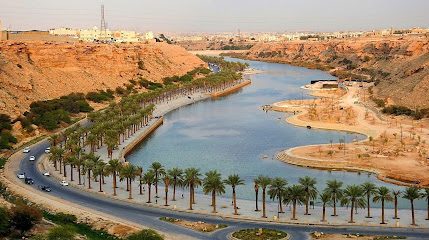
Wadi Namar Waterfall
Explore the stunning Wadi Namar Waterfall in Riyadh, where nature meets tranquility amidst picturesque landscapes and recreational activities.
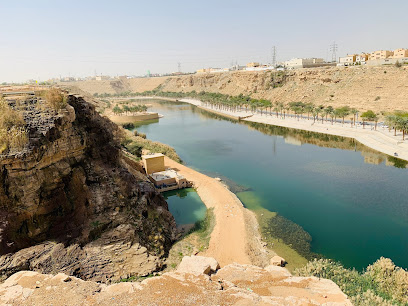
Bujairi Terrace
Discover exquisite dining at Bujairi Terrace, where culinary excellence meets the historic charm of Al Bujairi in Riyadh.
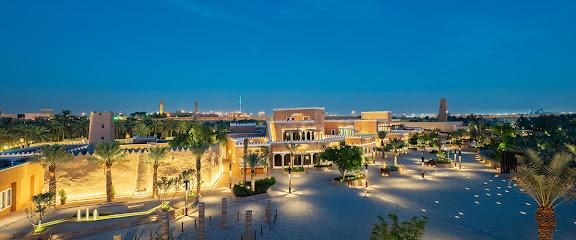
حديقة الوطن
Discover the vibrant charm of Al Watan Park, a theme park in Riyadh offering thrilling rides, lush gardens, and family-friendly fun for all ages.
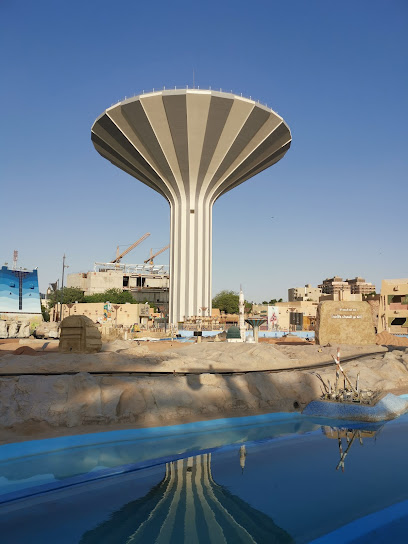
Salam Park
Explore the lush gardens and serene lakes of Salam Park, a tranquil haven in Riyadh perfect for families and nature enthusiasts.
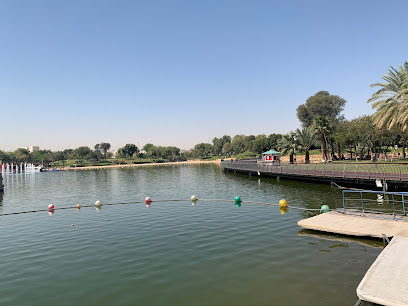
King Salman Park
Explore King Salman Park, a stunning green oasis in Riyadh, blending nature, wildlife, and adventure for an unforgettable experience.
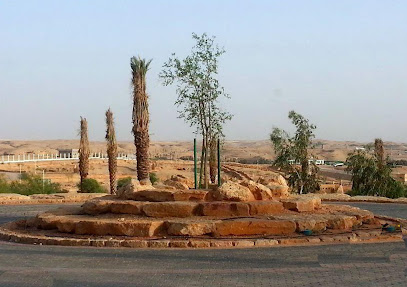
Al Masmak Palace Museum
Experience the historical grandeur of Al Masmak Palace Museum, a captivating fortress revealing the rich cultural tapestry of Riyadh.
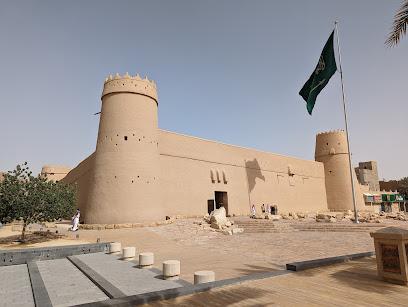
Boulevard World
Experience the magic of culture, cuisine, and entertainment at Boulevard World, Riyadh's premier tourist attraction.
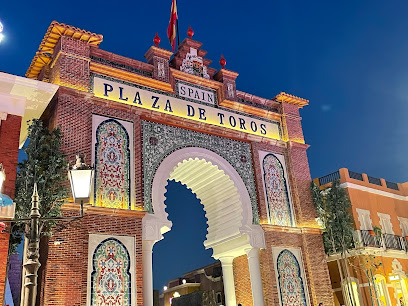
برج المملكة
Discover the Kingdom Centre in Riyadh: luxury shopping, exquisite dining, and stunning views from the iconic Sky Bridge.
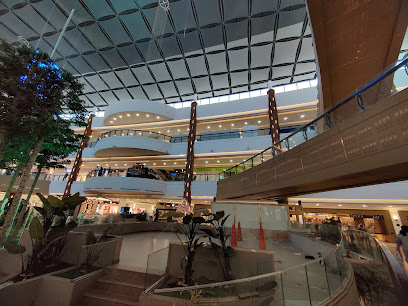
Al Faisaliah Tower
Explore Al Faisaliah Tower in Riyadh: a stunning architectural masterpiece offering breathtaking views, fine dining, and exclusive shopping experiences.
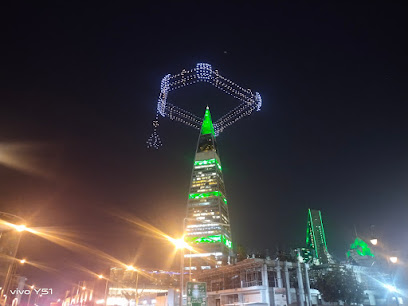
Al Malqa Park
Experience the serene beauty of Al Malqa Park in Riyadh, a perfect destination for relaxation, recreation, and family fun amidst nature.
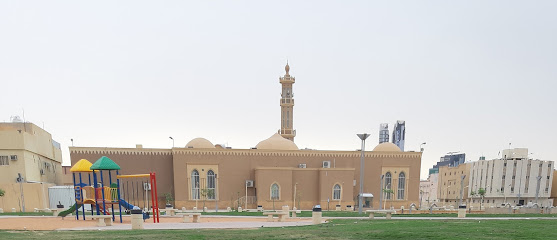
WORLD SIGHTS PARK
Explore World Sights Park in Riyadh, where iconic global landmarks meet stunning landscapes, perfect for relaxation and cultural experiences.
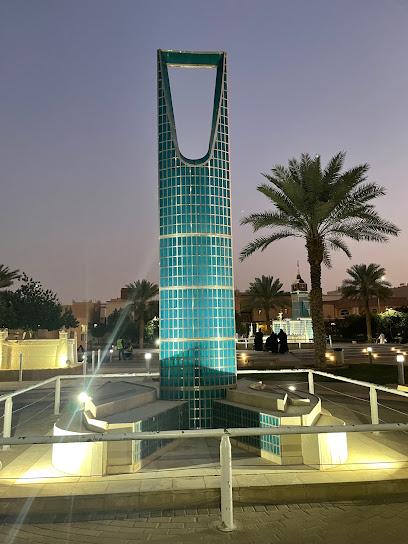
Essential places to dine
Assaraya Turkish Restaurant
Experience authentic Turkish cuisine at Assaraya Restaurant in Riyadh - where every dish tells a story.
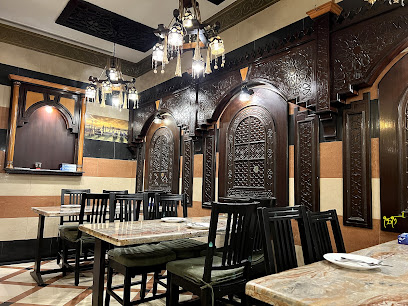
Piatto Restaurant
Experience the essence of Italy with delicious dishes at Piatto Restaurant in Riyadh - where every meal is a celebration of flavor.
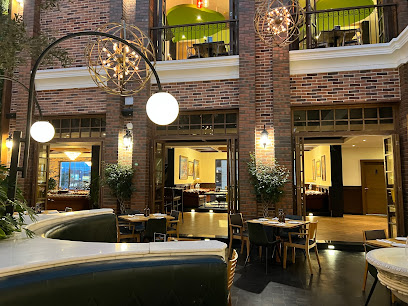
Off-White Al-Nafel
Experience the exquisite flavors of Middle Eastern cuisine at Off-White Al-Nafel in Riyadh – where tradition meets elegance.
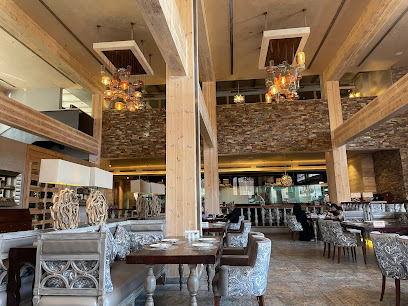
The Butcher Shop & Grill
Discover exquisite steaks and gourmet dishes at The Butcher Shop & Grill in Riyadh - where every meal is an unforgettable experience.
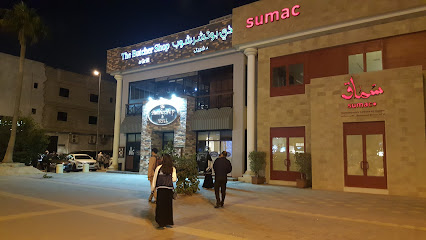
Sultan's Steakhouse Riyadh
Experience exquisite Turkish flavors at Sultan's Steakhouse Riyadh - where barbecue meets elegance in every bite.
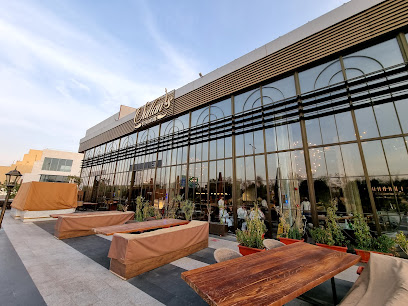
TOKYO
Experience the authentic taste of Japan in Tokyo's exquisite fine dining scene with sushi, teppanyaki, and udon noodles.
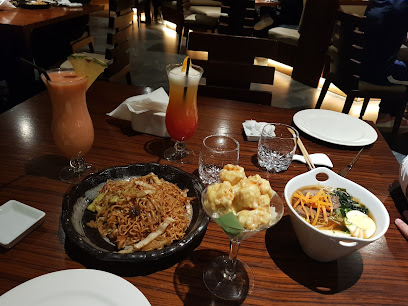
MYAZU Riyadh
Experience the finest sushi in Riyadh at MYAZU – where tradition meets modern elegance in every bite.
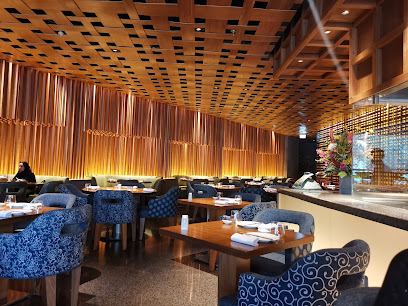
Zafran Indian Kitchen - Turki Square
Discover the vibrant flavors of India at Zafran Indian Kitchen in Turki Square - where every dish tells a story.
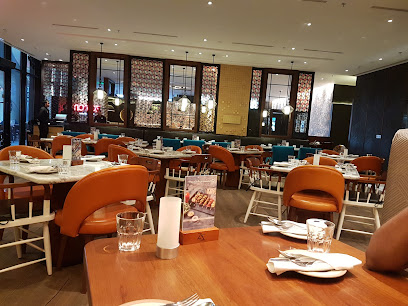
Nando's - Turki Square
Experience the zest of Portuguese cuisine at Nando's - Turki Square with flavorful peri-peri chicken and vibrant ambiance.
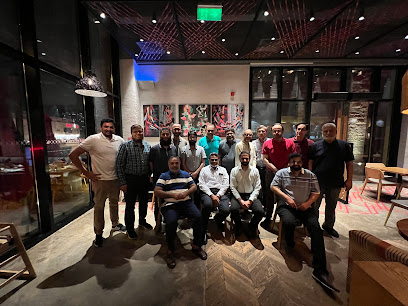
Lusin Restaurant - Centria Mall
Discover exquisite Armenian flavors at Lusin Restaurant in Centria Mall - a delightful dining experience awaits you!
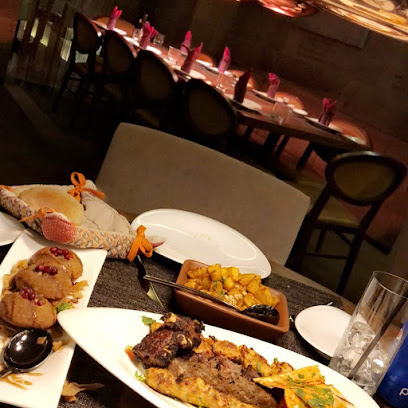
Zafran Indian Kitchen - Levels Mall
Experience authentic Indian flavors at Zafran Indian Kitchen in Riyadh's Levels Mall - where fine dining meets family-friendly atmosphere.
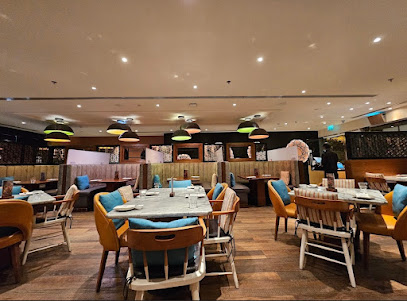
RUHI Indian Restaurant
Experience authentic Indian cuisine in Riyadh at RUHI Indian Restaurant, where flavors come alive in every dish.
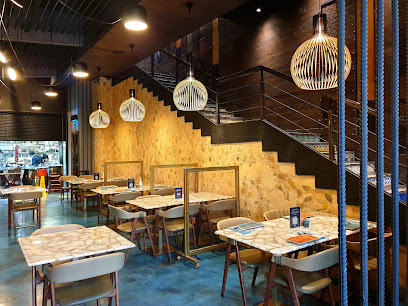
Ward Restaurant مطعم ورد
Discover exquisite Lebanese cuisine at Ward Restaurant in Riyadh's Al Mathar Ash Shamali district - where tradition meets elegance.
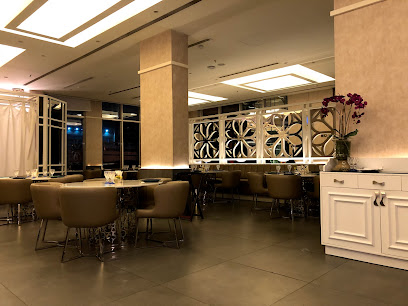
Benihana
Savor the art of Japanese dining at Benihana in Riyadh – where every meal is a feast for the senses.
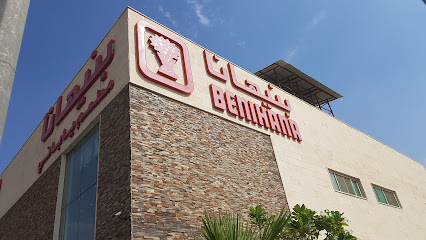
Lusin Restaurant - Diyafa Plaza
Experience the rich culinary heritage of Armenia at Lusin Restaurant in Riyadh's Diyafa Plaza - where tradition meets elegance.
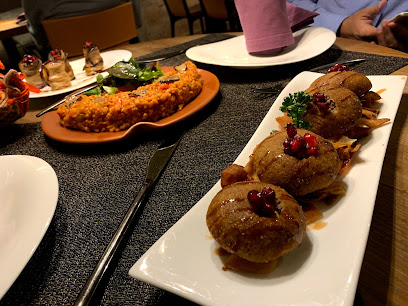
Markets, malls and hidden boutiques
Cenomi Al Nakheel Mall
Discover the ultimate shopping experience at Cenomi Al Nakheel Mall, where fashion, dining, and entertainment come together in Riyadh.
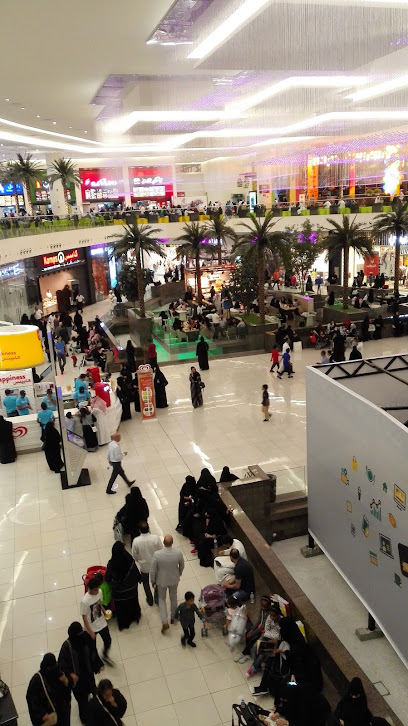
Riyadh Gallery Mall
Discover Riyadh Gallery Mall: A premier shopping destination featuring luxury brands, diverse dining options, and entertainment in the heart of Riyadh.
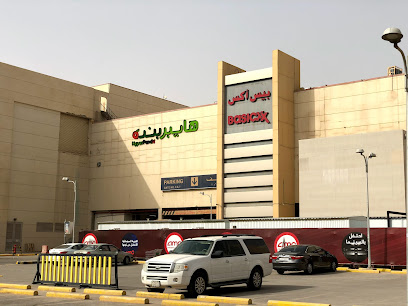
Granada Mall
Explore Granada Mall in Riyadh, a premier shopping destination with endless retail, dining, and entertainment options for every visitor.
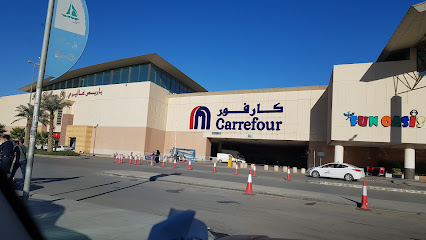
Panorama Mall
Explore Panorama Mall in Riyadh for an unforgettable shopping and dining experience, where modern retail meets local culture in a vibrant atmosphere.
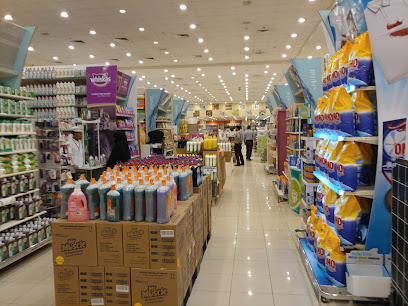
Kingdom Centre
Experience luxury shopping and breathtaking views at Kingdom Centre, Riyadh's premier destination for tourists seeking modernity and elegance.
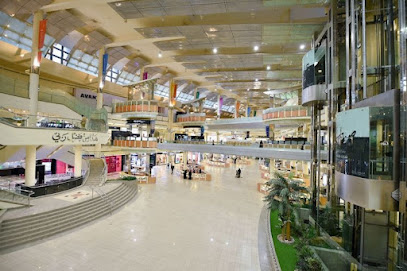
Sahara Mall
Explore Sahara Mall in Riyadh for an unforgettable shopping experience with diverse brands, delicious dining, and family-friendly entertainment.
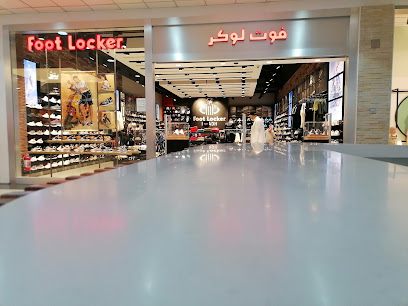
Thaghr Plaza
Experience the vibrant shopping culture of Riyadh at Thaghr Plaza, where fashion, food, and entertainment come together in a modern retail paradise.
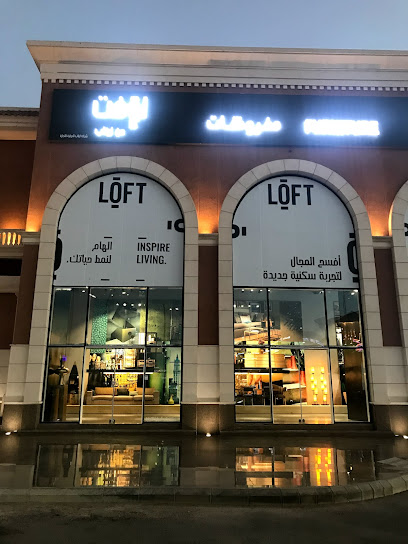
Riyadh Avenue Mall
Explore Riyadh Avenue Mall: A dynamic shopping and dining hub in the heart of Riyadh, offering diverse brands and entertainment for everyone.
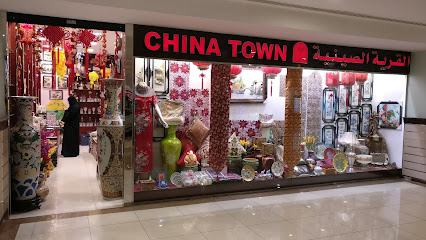
Souk Al Zal
Discover the charm of Souk Al Zal, Riyadh's historic market filled with traditional crafts, textiles, and a vibrant shopping experience.
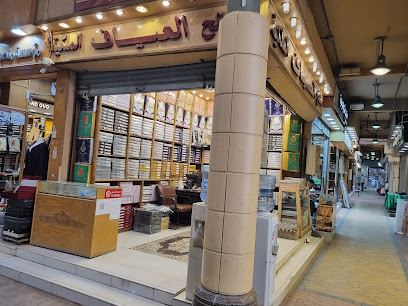
Nice Store
Discover an array of quality home goods at Nice Store, where style meets functionality in the heart of Riyadh.
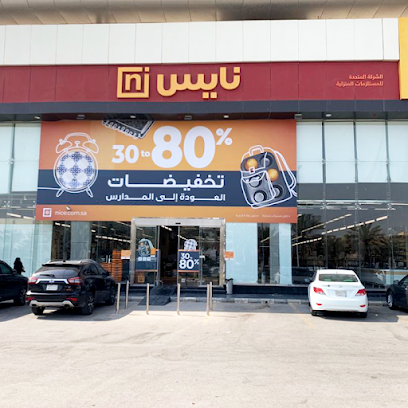
Cartier Kingdom Center
Explore the elegance of Cartier Kingdom Center in Riyadh – a luxurious destination for exquisite jewelry and unforgettable shopping experiences.
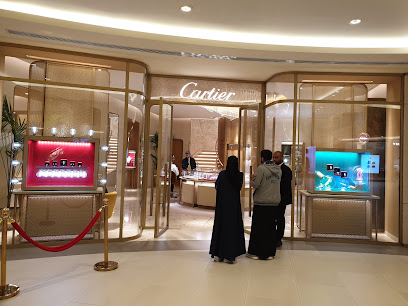
Nojoud Mall
Discover Nojoud Mall in Riyadh: Your ultimate shopping and dining destination with entertainment for all ages.
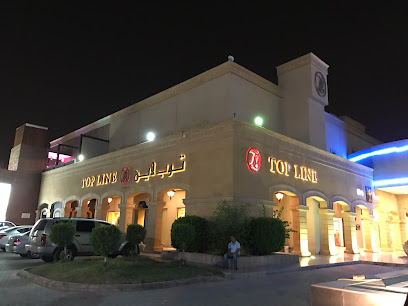
Rustic Boutique
Discover unique antiques and exquisite furniture at Rustic Boutique in Riyadh, a treasure trove of timeless designs and craftsmanship.
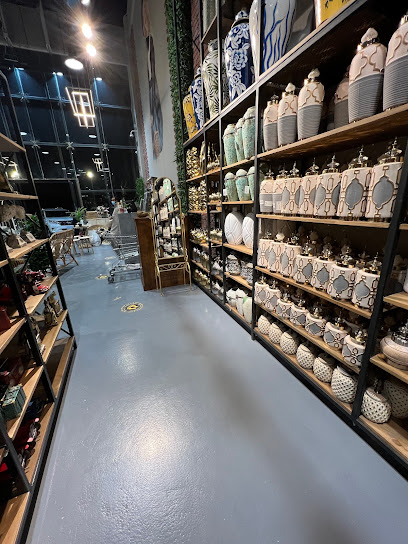
Riyadh gallery
Discover Riyadh Gallery: A top shopping destination featuring diverse stores and delightful dining options in the heart of Riyadh.
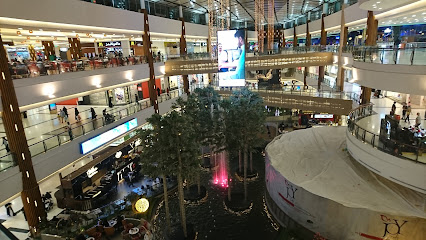
Le Cadeau
Explore Le Cadeau, a charming souvenir store in Riyadh, offering authentic local crafts and unique gifts that embody Saudi Arabian culture.
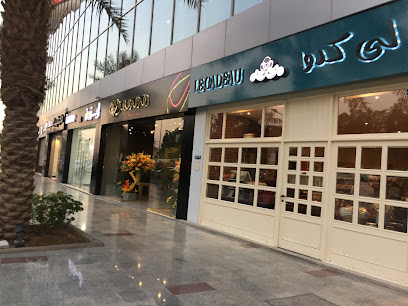
Essential bars & hidden hideouts
HuQQa Riyadh
Discover the vibrant atmosphere and authentic flavors at HuQQa Riyadh, where traditional Arabian cuisine meets the art of hookah.
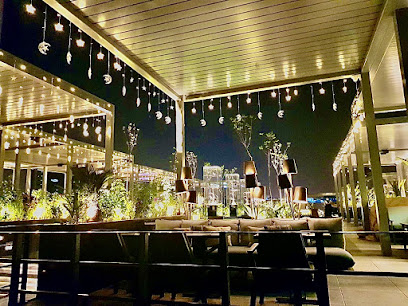
ARIA LOUNGE
Discover the elegance of ARIA LOUNGE in Riyadh, where exquisite dining meets a sophisticated atmosphere for an unforgettable experience.
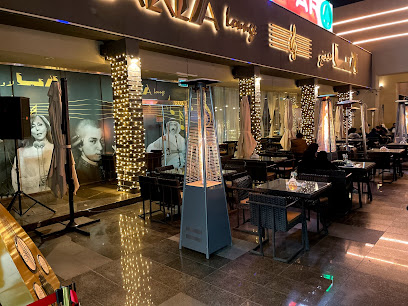
Paros Lounge
Discover Paros Lounge - Riyadh's vibrant hub for relaxation and nightlife, offering a perfect blend of drinks, bites, and a lively atmosphere.
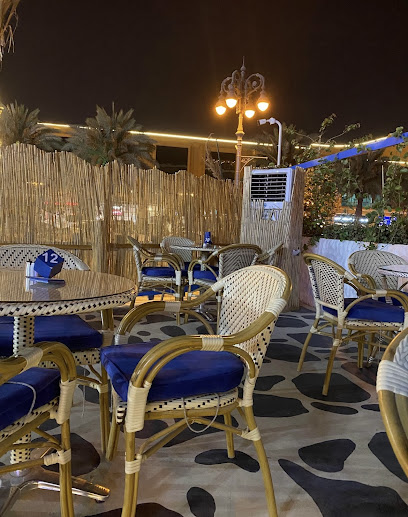
Arbol Lounge
Discover the ultimate relaxation at Arbol Lounge, Riyadh's premier hookah bar and coffee shop, where comfort meets flavor in a vibrant ambiance.
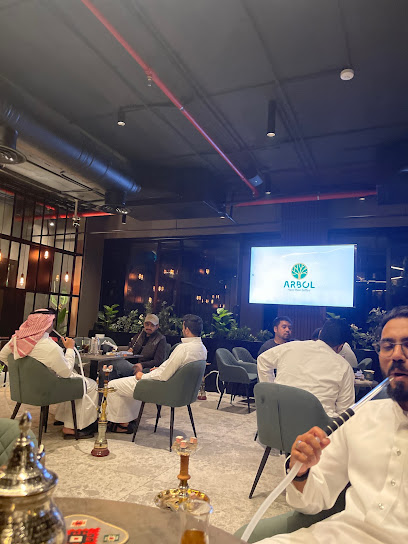
Piano Lounge
Experience the enchanting ambiance of Piano Lounge in Riyadh, where exquisite dining meets live music for a memorable night out.
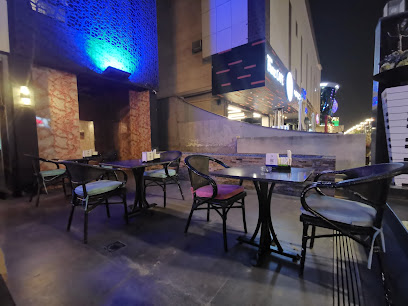
L.A. LOUNGE CLUB
Experience the vibrant blend of coffee culture and nightlife at L.A. Lounge Club in Riyadh, where every visit promises a unique ambiance.
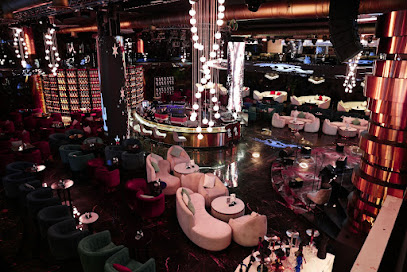
Sky Bar Cafe Lounge
Experience the vibrant atmosphere of Sky Bar Cafe Lounge in Riyadh, where delicious bites and aromatic hookahs create the perfect escape.
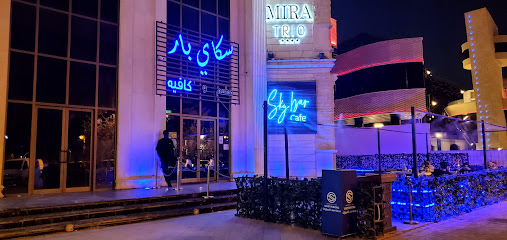
Sama Lounge Terrace
Discover the luxury of Sama Lounge Terrace in Riyadh, where exquisite dining and breathtaking views create an unforgettable experience.
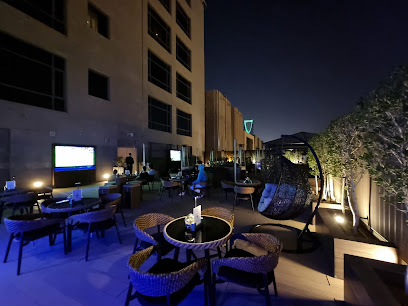
كوفي كلوب البن الفريد Coffee Club & unique coffee
Experience the vibrant culture and unique flavors at Coffee Club & Unique Coffee, a premier destination for coffee lovers in Riyadh.
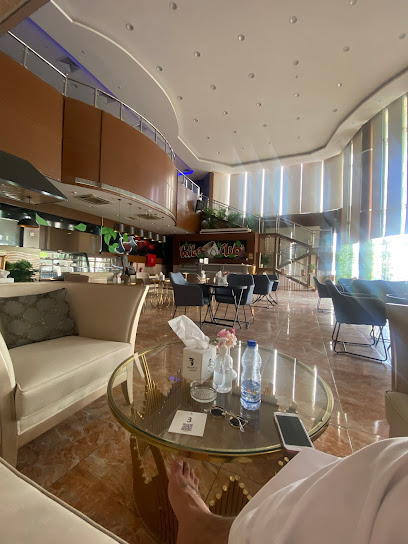
Elemental
Discover Elemental, a culinary haven in Riyadh, where exquisite flavors meet a vibrant dining atmosphere in the heart of the city.
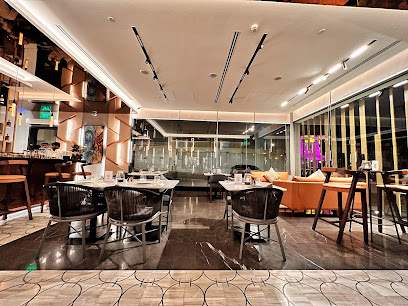
10:10 Lounge
Experience the blend of luxury and flavor at 10:10 Lounge in Riyadh's Al Safarat district, a must-visit for discerning travelers.
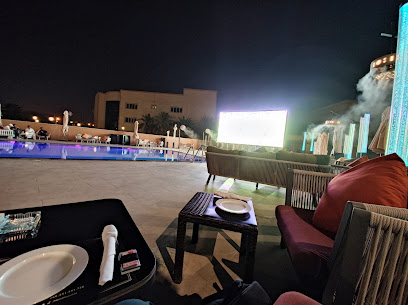
Golden Marquise مطعم قولدن ماركيز
Experience the elegance of Golden Marquise, a luxurious lounge in Riyadh offering fine dining and exceptional service in a stylish setting.
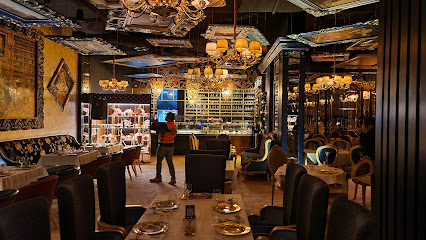
Level Up
Discover Level Up, the premier gaming lounge in Riyadh, where entertainment meets a cozy atmosphere and community spirit.
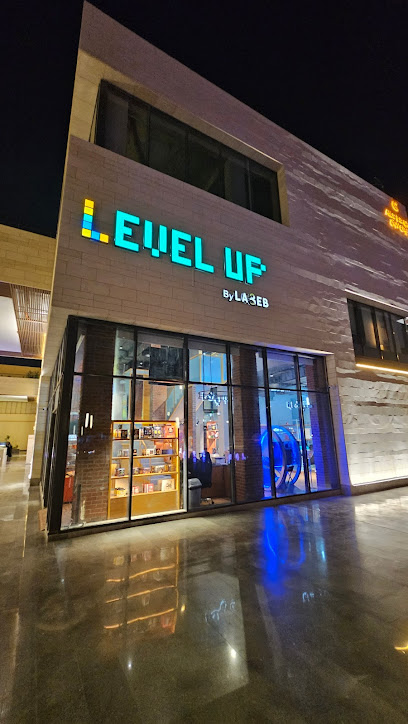
RendezVous lounge hookah Bar Coffee مقهى و لاونج موعد الليل رنديفو - عصائر طازجه - شيشة - قهوه مختصه
Discover the perfect blend of relaxation and flavor at RendezVous Lounge, Riyadh's premier coffee shop and hookah bar.
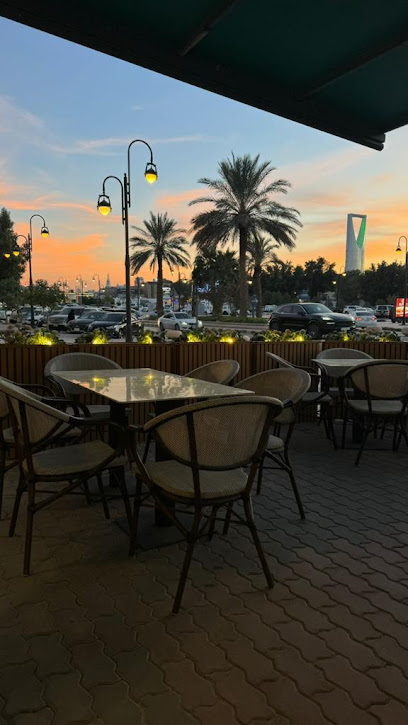
Local Phrases
-
- Helloمرحبا
[marhaban] - Goodbyeوداعا
[wadaeana] - Yesنعم
[naam] - Noلا
[laa] - Please/You're welcomeمن فضلك
[min fadlik] - Thank youشكرا
[shukran] - Excuse me/Sorryعذرا
[udhran] - How are you?كيف حالك؟
[kayfa haluka?] - Fine. And you?بخير. وأنت؟
[bikhayr. wa'ant?] - Do you speak English?هل تتحدث الإنجليزية؟
[hal tatahadath al'inglizia?] - I don't understandأنا لا أفهم
[ana la afham]
- Helloمرحبا
-
- I'd like to see the menu, pleaseأود أن أرى القائمة، من فضلك
[awad 'an 'ara alqaimah, min fadlik] - I don't eat meatأنا لا آكل اللحم
[ana la aakul allahm] - Cheers!في صحتك!
[fi sahtak!] - I would like to pay, pleaseأود أن أدفع، من فضلك
[awad 'an 'udfi, min fadlik]
- I'd like to see the menu, pleaseأود أن أرى القائمة، من فضلك
-
- Help!النجدة!
[alnajdah!] - Go away!انصرف!
[ansarif!] - Call the Police!اتصل بالشرطة!
[atassal bialshurta!] - Call a doctor!اتصل بطبيب!
[atassal bitalib!] - I'm lostأنا ضائع
[ana dayi'] - I'm illأنا مريض
[ana mareed]
- Help!النجدة!
-
- I'd like to buy...أريد أن أشتري...
[urid 'an 'ashtari...] - I'm just lookingأنا فقط أتفرج
[ana faqat atafaraj] - How much is it?كم سعره؟
[kam si'ruh?] - That's too expensiveهذا غالي جدا
[hatha ghali jiddan] - Can you lower the price?هل يمكنك تخفيض السعر؟
[hal yumkinuka takhfid alsu'ur?]
- I'd like to buy...أريد أن أشتري...
-
- What time is it?كم الوقت؟
[kam alwaqt?] - It's one o'clockالواحدة
[alwahidah] - Half past (10)العاشرة والنصف
[al'ashirah walnusf] - Morningالصباح
[alsaabah] - Afternoonالمساء
[almasa'] - Eveningالمساء
[almasa'] - Yesterdayأمس
[ams] - Todayاليوم
[alyawm] - Tomorrowغدا
[ghadan] - 1واحد
[wahid] - 2اثنان
[ithnan] - 3ثلاثة
[thalatha] - 4أربعة
[arba'ah] - 5خمسة
[khamsah] - 6ستة
[sittah] - 7سبعة
[sab'ah] - 8ثمانية
[thamania] - 9تسعة
[tis'ah] - 10عشرة
[asharah]
- What time is it?كم الوقت؟
-
- Where's a/the...?أين...؟
[ayn...?] - What's the address?ما هو العنوان؟
[ma huwa al'anaan?] - Can you show me (on the map)?هل يمكنك أن تريني (على الخريطة)؟
[hal yumkinuka 'an tureeni (ala alkhareetah)?] - When's the next (bus)?متى الحافلة التالية؟
[mata alhafilah alttaliyah?] - A ticket (to ....)تذكرة (إلى ...)
[tadhkarah (ila ...)]
- Where's a/the...?أين...؟
History of Riyadh
-
Before the advent of Islam, the area where Riyadh is now located was part of the Al-Yamama region, inhabited by various tribes. The fertile land and strategic location made it a hub for trade and agriculture. The city’s name, derived from the Arabic word for 'gardens' or 'meadows,' reflects its lush environment during this period.
-
With the spread of Islam in the 7th century, the region saw significant changes. Riyadh and its surrounding areas became part of the Islamic Caliphates. The city was relatively small but held religious and strategic importance due to its location on the trade routes.
-
In the mid-18th century, the Al Saud family established their first Saudi state in Diriyah, near present-day Riyadh. This marked the beginning of the modern history of the region. Diriyah became a center of power and culture, contributing to the growth and significance of Riyadh.
-
In 1902, Abdulaziz Ibn Saud captured Riyadh, marking a pivotal moment in Saudi history. This event was crucial in the unification of the various tribes and regions into the Kingdom of Saudi Arabia. Riyadh was chosen as the capital, symbolizing the unity and strength of the new nation.
-
The 1960s and 1970s under King Faisal saw extensive modernization efforts in Riyadh. Infrastructure projects, educational institutions, and healthcare facilities were developed, transforming Riyadh into a modern metropolis. This period also marked the beginning of Riyadh’s expansion and urbanization.
-
The oil boom of the late 20th century brought unprecedented wealth to Saudi Arabia. Riyadh experienced rapid growth, becoming a hub for business and government. Skyscrapers, highways, and modern amenities reshaped the city’s landscape, making it a symbol of Saudi Arabia’s economic prowess.
-
In recent years, Riyadh has embarked on an ambitious cultural and economic transformation as part of Saudi Arabia’s Vision 2030. The city is seeing the development of cultural institutions, entertainment venues, and mega-projects like the King Abdullah Financial District. These efforts aim to diversify the economy and enhance the quality of life for residents and visitors alike.
Riyadh Essentials
-
Riyadh is well-connected to the rest of the world through King Khalid International Airport (RUH), located about 35 kilometers north of the city center. The airport serves numerous international and domestic flights. From the airport, you can take a taxi or a ride-sharing service to reach your destination in the city. Additionally, Riyadh is accessible by road from other major cities in Saudi Arabia, and there are intercity buses and trains available.
-
Riyadh offers various modes of transportation, including taxis, ride-sharing services, and public buses. The Riyadh Metro, currently under construction with some lines already operational, will provide a convenient and efficient way to navigate the city. Renting a car is also an option, but be aware of local driving customs and traffic regulations. For shorter distances, walking is feasible in certain areas, although the city is generally car-oriented.
-
The official currency in Saudi Arabia is the Saudi Riyal (SAR). Credit and debit cards are widely accepted in hotels, restaurants, and larger shops. However, it is advisable to carry some cash for smaller establishments and markets. ATMs are plentiful throughout Riyadh, and currency exchange services are available at the airport and within the city.
-
Riyadh is generally a safe city for tourists, with low crime rates compared to many other global cities. However, it is always wise to take standard precautions: avoid displaying valuable items, be cautious in crowded places, and avoid poorly lit areas at night. Some neighborhoods, such as Batha, may have higher petty crime rates; exercise extra vigilance when visiting these areas.
-
In case of emergency, dial 999 for police, 997 for medical emergencies, and 998 for the fire department. Major hospitals, such as King Faisal Specialist Hospital and Research Centre, provide high-quality medical care. It is recommended to have travel insurance that covers medical emergencies. Pharmacies are widely available for minor health issues.
-
Fashion: Do dress modestly, with men and women avoiding revealing clothing. Women should wear an abaya in public. Religion: Do respect local customs and traditions, especially during prayer times. Avoid discussing religion or politics. Public Transport: Do be respectful and avoid loud conversations. Men should avoid sitting next to women they are not related to. Greetings: Do greet people with a handshake; avoid shaking hands with the opposite gender unless initiated by them. Eating & Drinking: Do try local cuisine and accept hospitality graciously. Don't eat, drink, or smoke in public during the holy month of Ramadan from dawn until dusk.
-
To experience Riyadh like a local, visit traditional markets (souks) such as Souk Al Zal for antiques and Souk Al Thumairi for traditional goods. Enjoy local cuisine at popular eateries like Najd Village. Engage with locals to learn about the culture and history of the city. Don't miss visiting historical sites like Diriyah, the original home of the Saudi royal family, and the National Museum of Saudi Arabia.
Nearby Cities to Riyadh
-
Things To Do in Buraidah
-
Things To Do in Al Jubail
-
Things To Do in Al Khobar
-
Things To Do in Dammam
-
Things To Do in Budaiya
-
Things To Do in Hamad Town
-
Things To Do in Saar
-
Things To Do in Riffa
-
Things To Do in Isa Town
-
Things To Do in Manama
-
Things To Do in Sitra
-
Things To Do in Juffair
-
Things To Do in Muharraq
-
Things To Do in Amwaj Islands
-
Things To Do in Al Sheehaniya

















